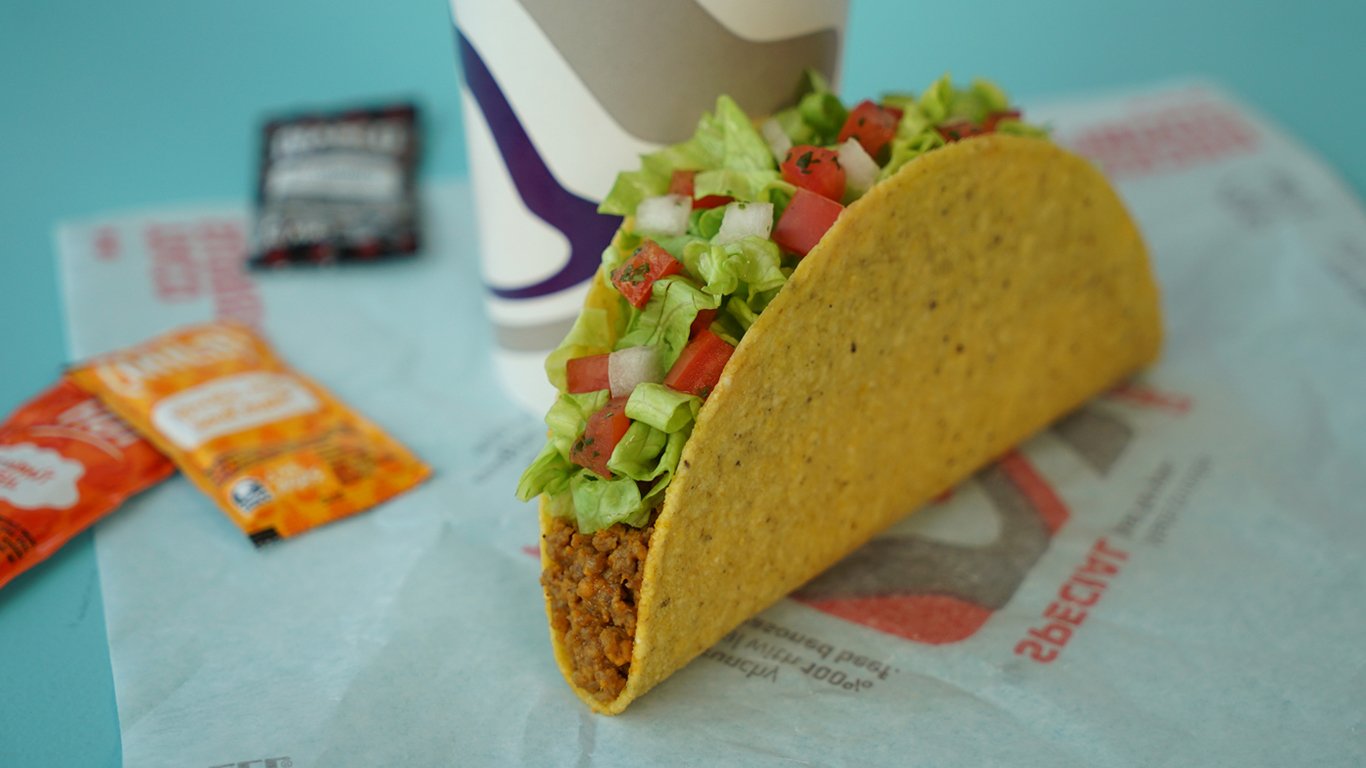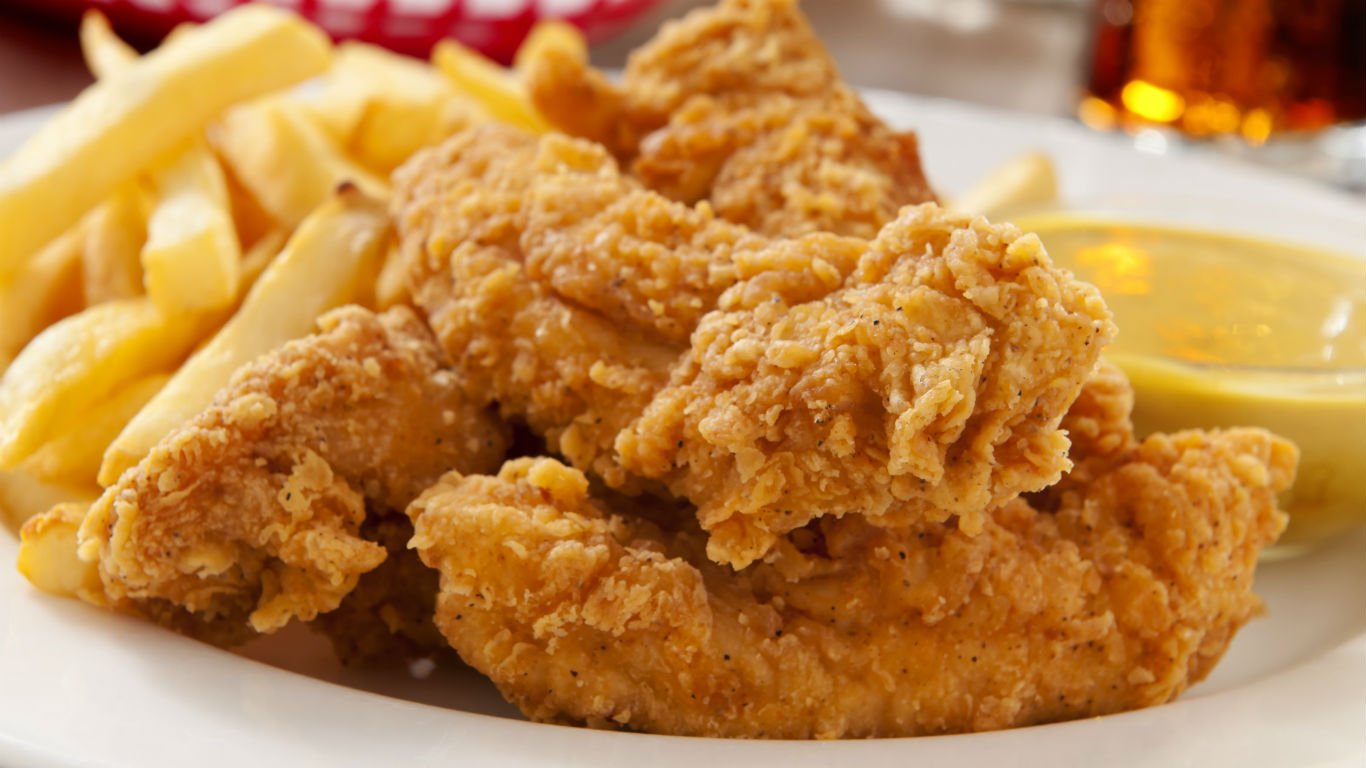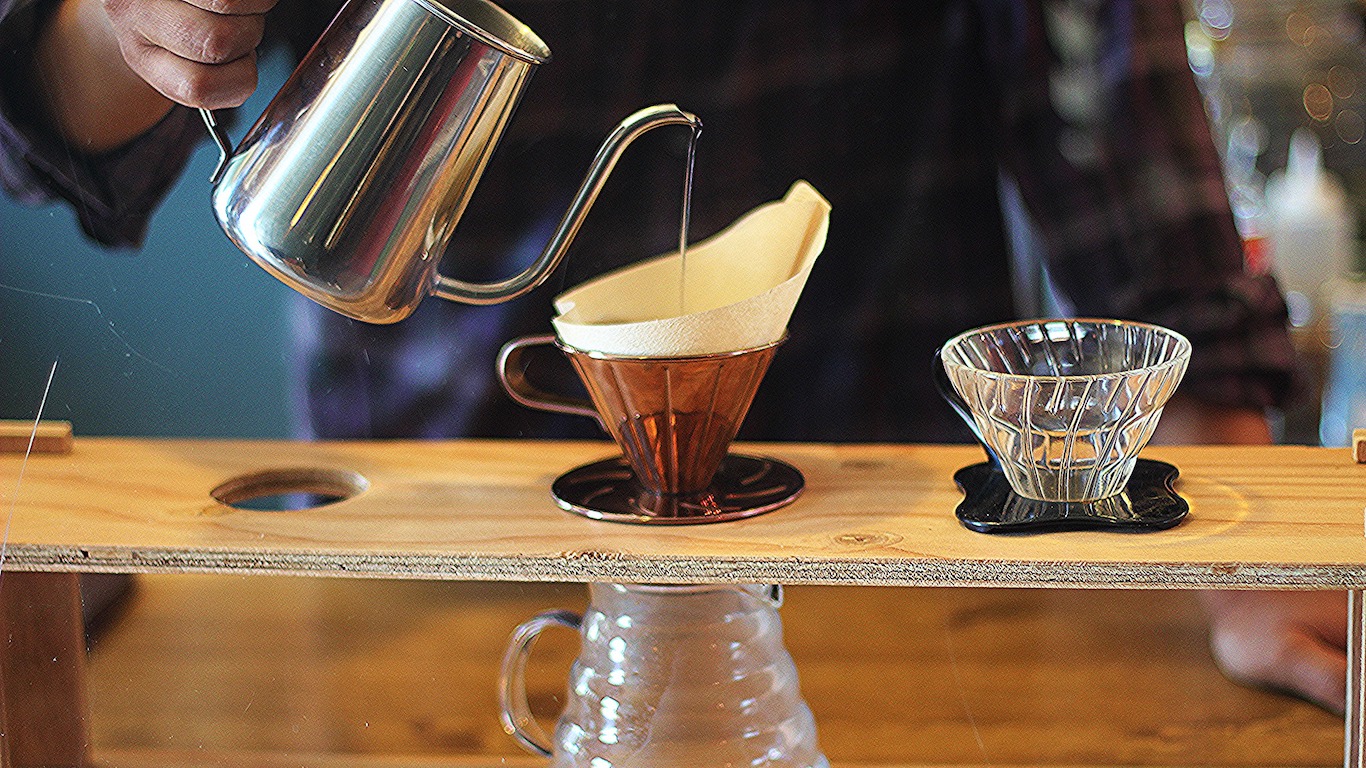

Potato chips were apparently invented in 1853 by a cook named George Crum — possibly of African-American and Native American descent — who worked at Moon’s Lake House on Saratoga Lake in New York State. The probably apocryphal story is that a customer at the restaurant sent back his fried potatoes because they weren’t crisp enough and so, in a fit of pique, Crum fried them into a bet-you-can’t-eat-these consistency before sending them back out.
As it happened, though, the over-cooked potatoes were unexpectedly well received, and went on to become a regular menu item. Crum called them “potato crunches” at first, but after he began making up large quantities and selling them by the bag, he dubbed them Saratoga chips — the name by which potato chips were to be known for some years. This makes the snack an example of a truly American snack, just like these “foreign” foods that are really American.
The chips remained restaurant fare for decades, becoming packaged goods for sale in grocery stores only around the turn of the century.
Two potato chip companies that are still in business — Tri-Sum in Massachusetts and Mikesell’s in Ohio — date from the first ten years of the 1900s. As the century progressed and the popularity of potato chips spread, regional producers grew up all over the country in large numbers, and regional styles and favored flavors developed.
Click here for regional potato chip brands the whole country deserves
Today, big companies predominate in the chip market — Frito-Lay brands alone account for almost $3.5 billion in annual U.S. sales, more than five times the sales of the next largest manufacturer — but small regional chip-makers, both veteran and newly established, still play an important role in the potato chip scene.
Based on consumer reviews and first-hand tasting experience, 24/7 Tempo has identified 16 of the best regional potato chip brands in America — all with limited distribution but all worthy of widespread appreciation.
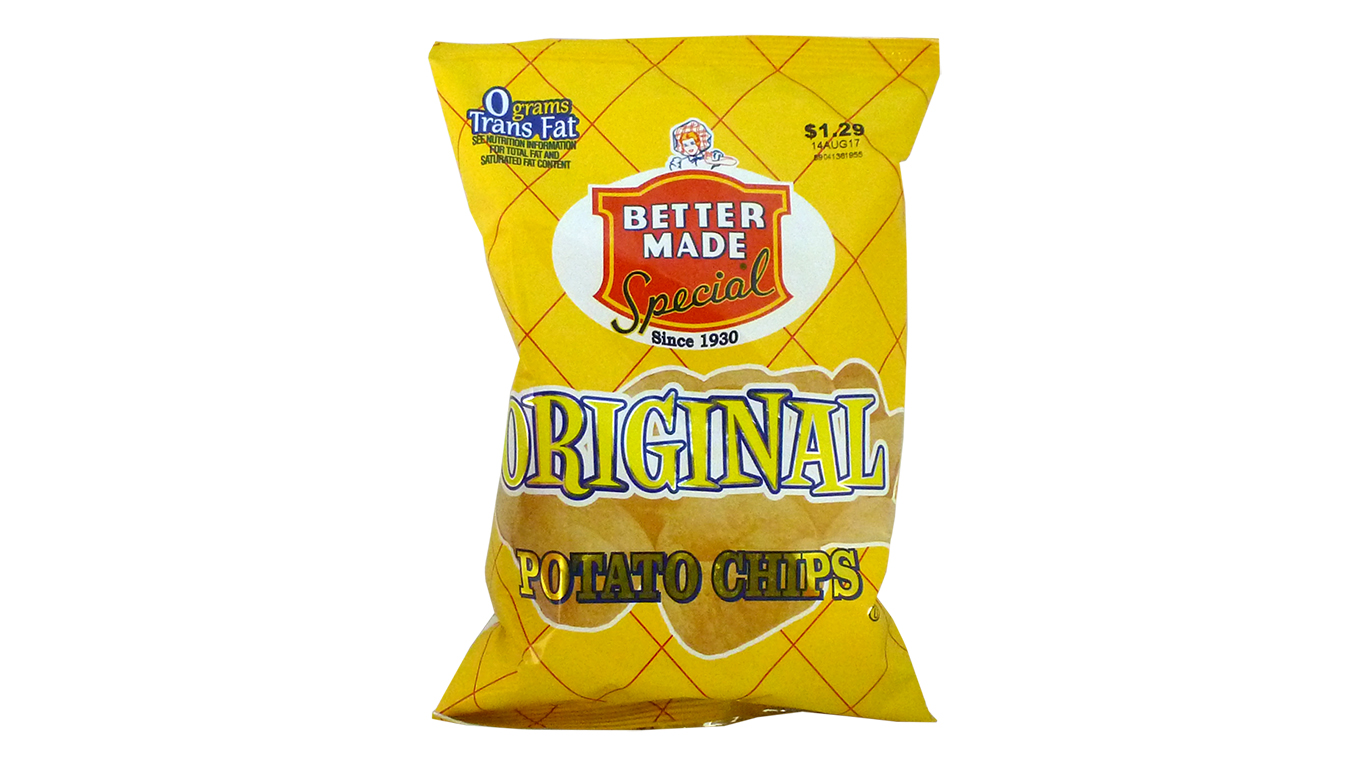
Better Made
> Home state: Michigan
Better Made was founded in 1930 in Detroit, a city that was once something of a potato chip capital, home to more than 40 local brands. Besides plain chips, the product line includes BBQ, Red Hot, Sour Cream and Onion, Salt and Vinegar, and Sweet BBQ varieties. The company also produces Rainbow Chips — not an LGBTQ reference but the name of an old-style chip which turns dark in color during frying due to the sugar content of certain potato varieties. Though sales remain concentrated in Michigan, the chips are now sold in some 14 other states, mostly in the South and on the Eastern Seaboard.
[in-text-ad]
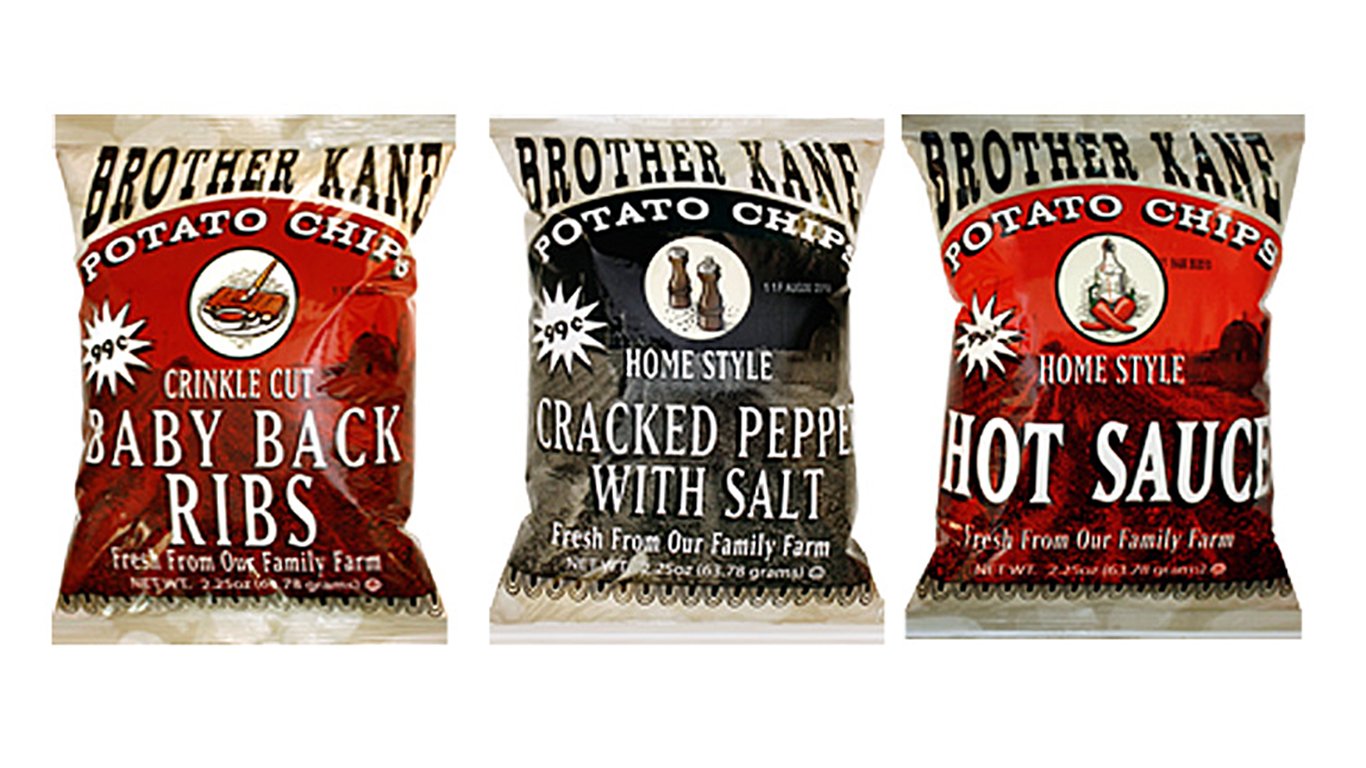
Brother Kane
> Home state: Georgia
This Atlanta-based company initially sold only peanuts, but expanded into the potato chip business, using potatoes from their family farm. The line includes crinkle-cut offerings in Baby Back Ribs, Buffalo Wing Bleu Cheese, and Sweet n’ Tangy BBQ flavors and “home style” Cracked Pepper with Salt, Hot Sauce, and Jalapeño chips. Brother Kane chips are sold almost exclusively in vending machines.
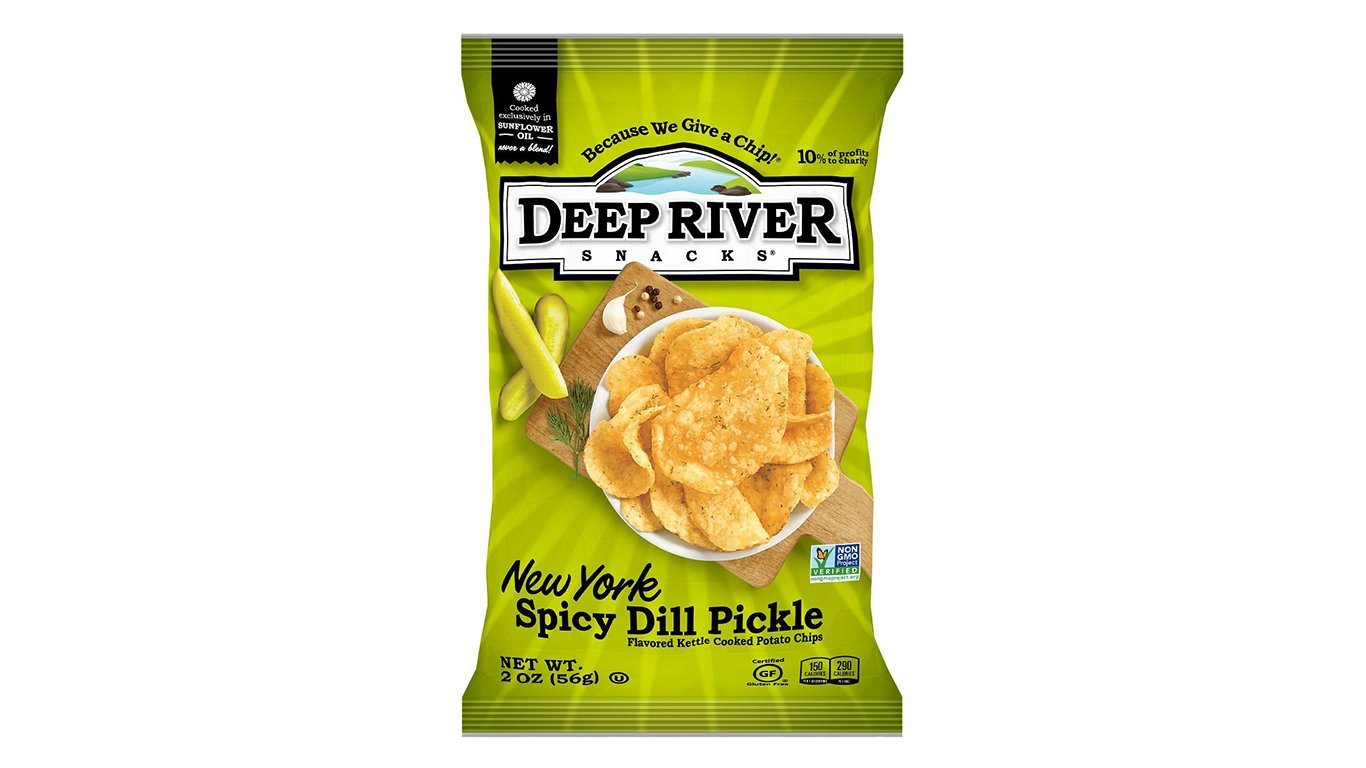
Deep River
> Home state: Connecticut
Originally a family-owned brand based in the Connecticut town of Old Lyme, Deep River was bought two years ago by a Mexican firm, Arca Continental, which is one of the largest Coca-Cola bottlers in Latin America. The kettle-cooked chips, which advertise that they contain 50% less fat than conventional chips, are fried in small batches in sunflower oil. There are 18 varieties, including Black Truffle, New York Spicy Dill Pickle, and Ninja Ginger; five flavors are available exclusively at TJ Maxx stores.
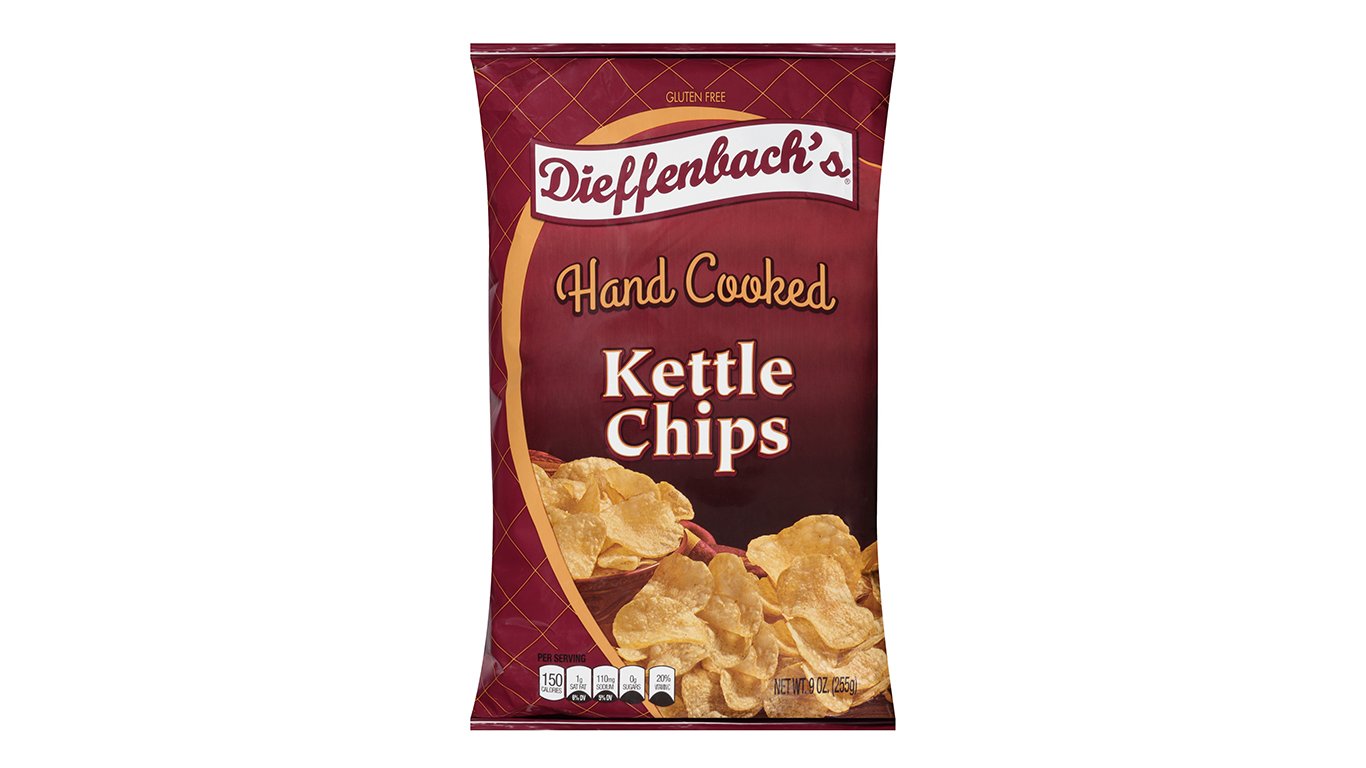
Dieffenbach’s
> Home state: Pennsylvania
Launched in 1964 in Mark Dieffenbach’s kitchen in Womelsdorf, northwest of Philadelphia, the company now produces more than 250,000 pounds of kettle-cooked chips a week. The 16 varieties include the usual Bar-B-Q, Sour Cream & Onion, and Jalapeño options, as well as hand-cooked plain chips “given personal attention by one of our skilled craftsmen,” Sweet Ghost Pepper chips, and four varities of Uglies — “crafted from potatoes with minor imperfections.” A second brand owned by the company, One Potato Two Potato, is available nationally and internationally, but as much as 90% of the Dieffenbach’s output is sold in Pennsylvania.
[in-text-ad-2]
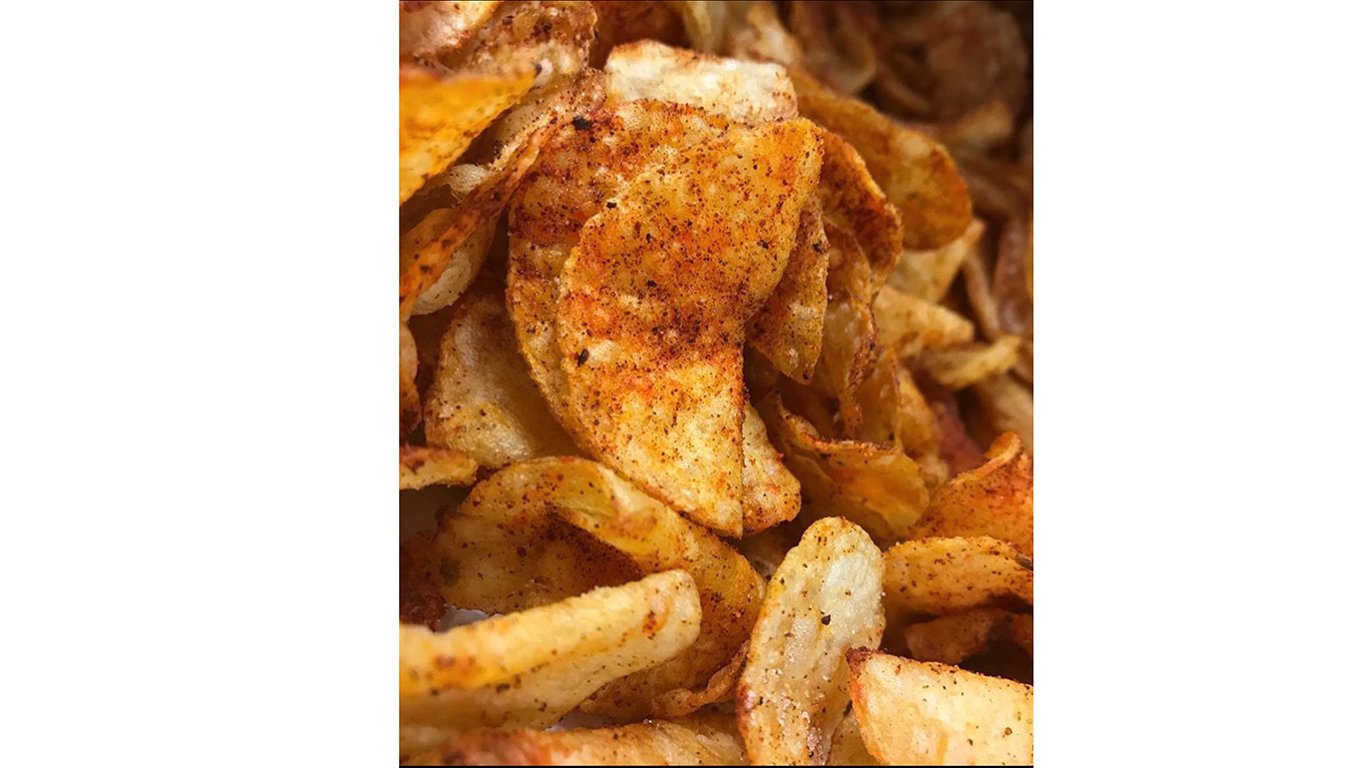
The Drunk Alpaca
> Home state: Connecticut
Established in 2016 by two women who met while working at Whole Foods in Darien (one of them grew up on an alpaca farm), The Drunk Alpaca is a bakery in Shelton, just west of New Haven. Their product line includes brownies, blondies, beer nuts, and pretzels as well as cakes, pies, etc., along with a unique selection of potato chips. Available in Sea Salt, BBQ, Herb, Rosemary, and Jalapeno versions, the chips are all glazed with a reduction of regional craft beer
(an ever-changing selection) with honey and butter. The chips are small, very crisp, dark, and difficult to find even in their home state (but available by mail order).
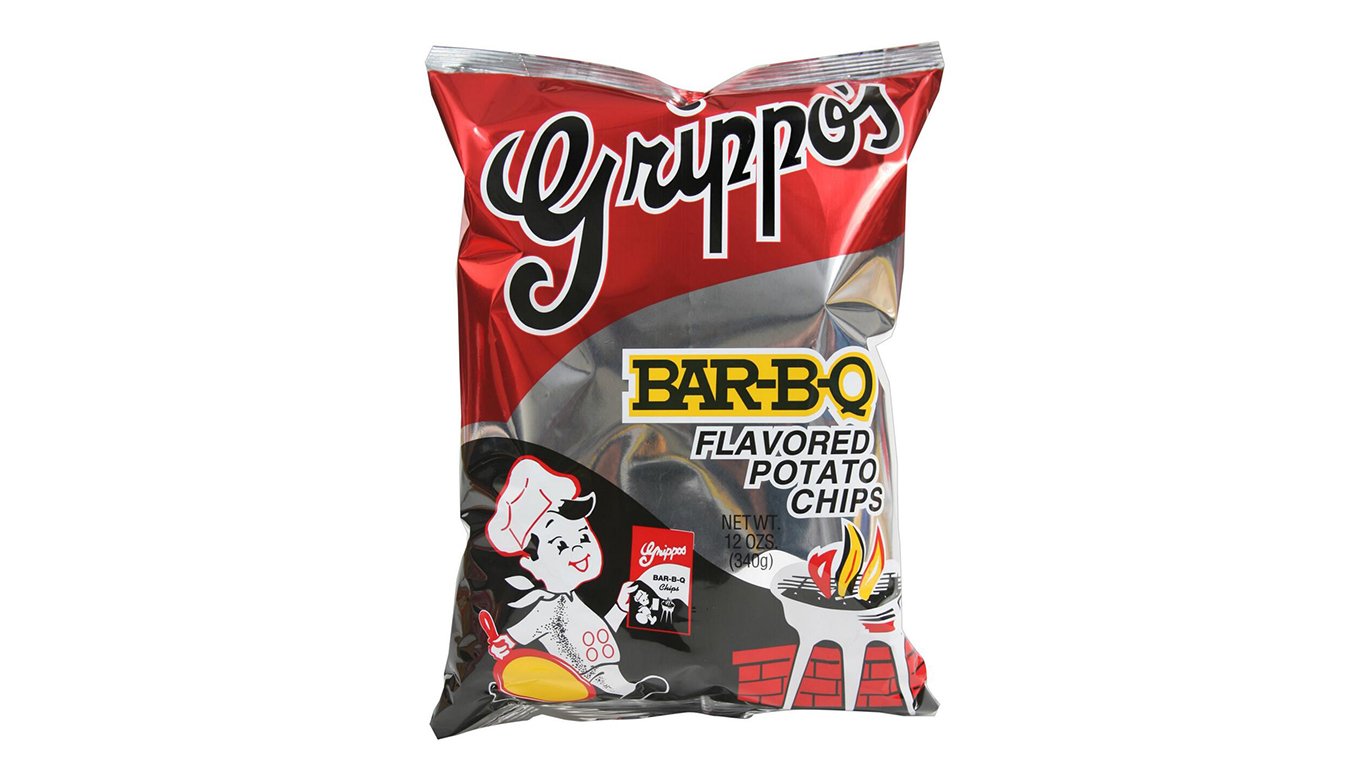
Grippo’s
> Home state: Ohio
Angelo Grippo founded his company in Cincinnati in 1919 to make ice cream cones. The company later expanded to pretzels and, in 1959, added potato chips to their product line. In addition to their plain chips, Grippo’s offers a variety of wavy chips (Salt & Vinegar, Sour Cream & Onion, Sweet Maui Onion, Cheddar and Horseradish), and specialty items like a new Carolina Classic Bar-B-Q chip. They’re best known, though, for their standard Bar-B-Q offering, spicy and sweet. Fans particularly like the crumbs and seasonings that settle to the bottom of the bag.
[in-text-ad]
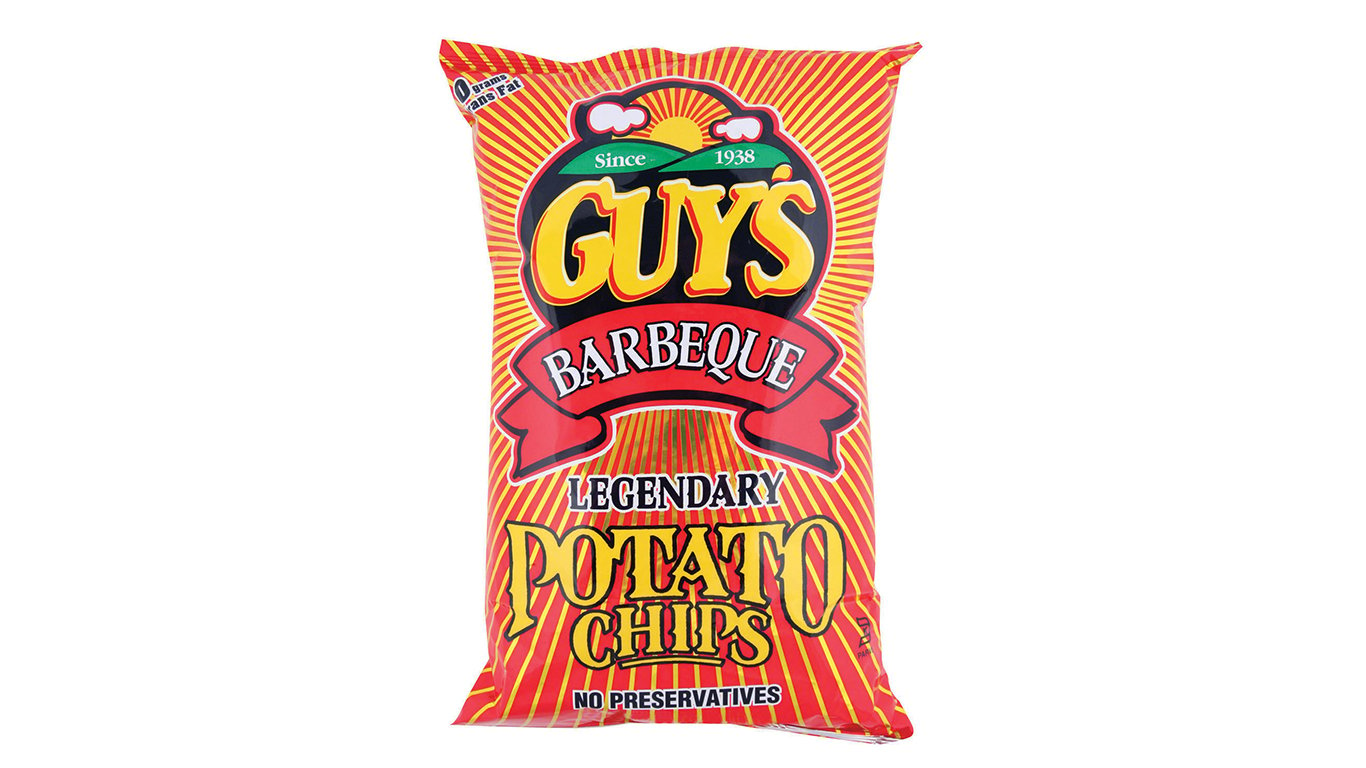
Guy’s Snacks
> Home state: Missouri
Guy’s Nut and Potato Chip Co. started life in 1938 in Kansas City as Guy’s Nut and Candy Company. Today, the company makes ten variations on the potato chip, including wavy and “Ridges” varieties. The most famous is its barbeque flavor — a chip that Guy’s claims to have invented. Guy’s chips are sold in Arkansas, Iowa, Kansas, Missouri, and Oklahoma.
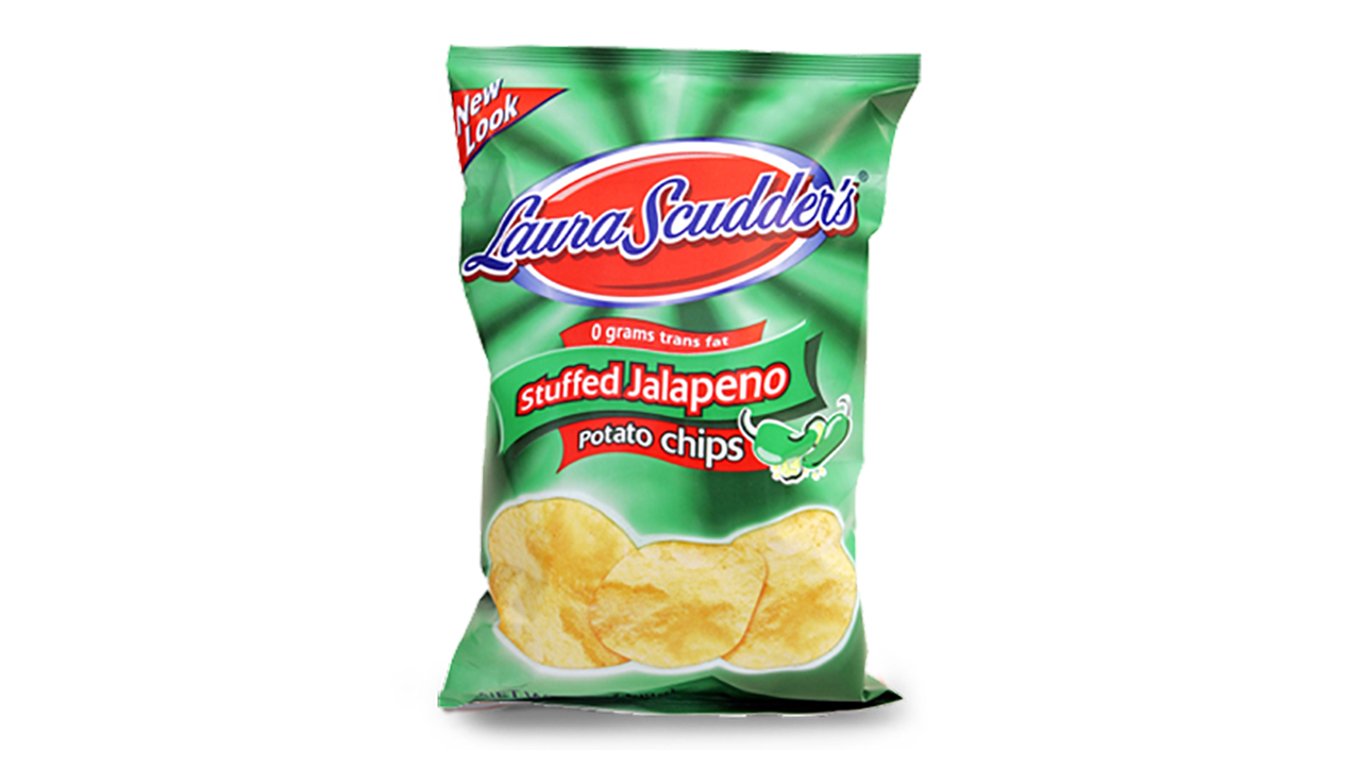
Laura Scudder’s
> Home state: California
A longtime California favorite, the Laura Scudder’s brand was founded by an attorney of the same name in the Los Angeles County community of Monterey Park back in 1926. At the time, potato chips were sold in tins or barrels. Scudder was the first to sell them in wax paper bags, and later the first to date the packaging. Besides the usual, Laura Scudder flavors include Stuffed Jalapeno.
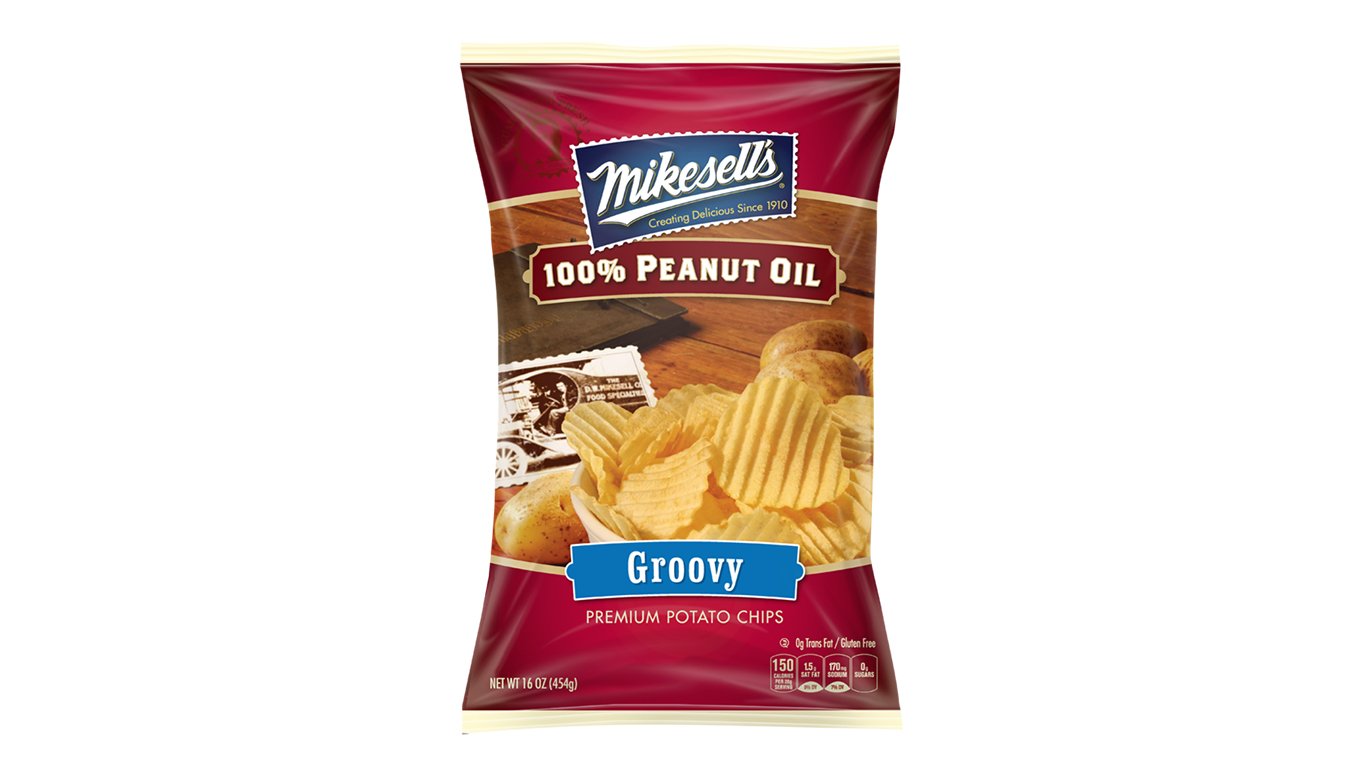
Mikesell’s
> Home state: Ohio
“We’ve been around longer than almost every other potato chip company in the United States,” Mikesell’s claims on its website (see Tri-Sum, below). Daniel W. Mikesell founded his enterprise in Dayton in 1910, originally selling sausage and dried beef but soon expanding into “Saratoga chips.” Today’s product list includes almost 20 varieties, including both Honey Bar-B-Que and Zesty Barbecue, as well as Good’n Hot Groovy, Old Fashioned Himalayan Sea Salt and Vinegar, and 100% Peanut Oil choices. The chips are sold in Ohio, Indiana, Kentucky, and Illinois.
[in-text-ad-2]
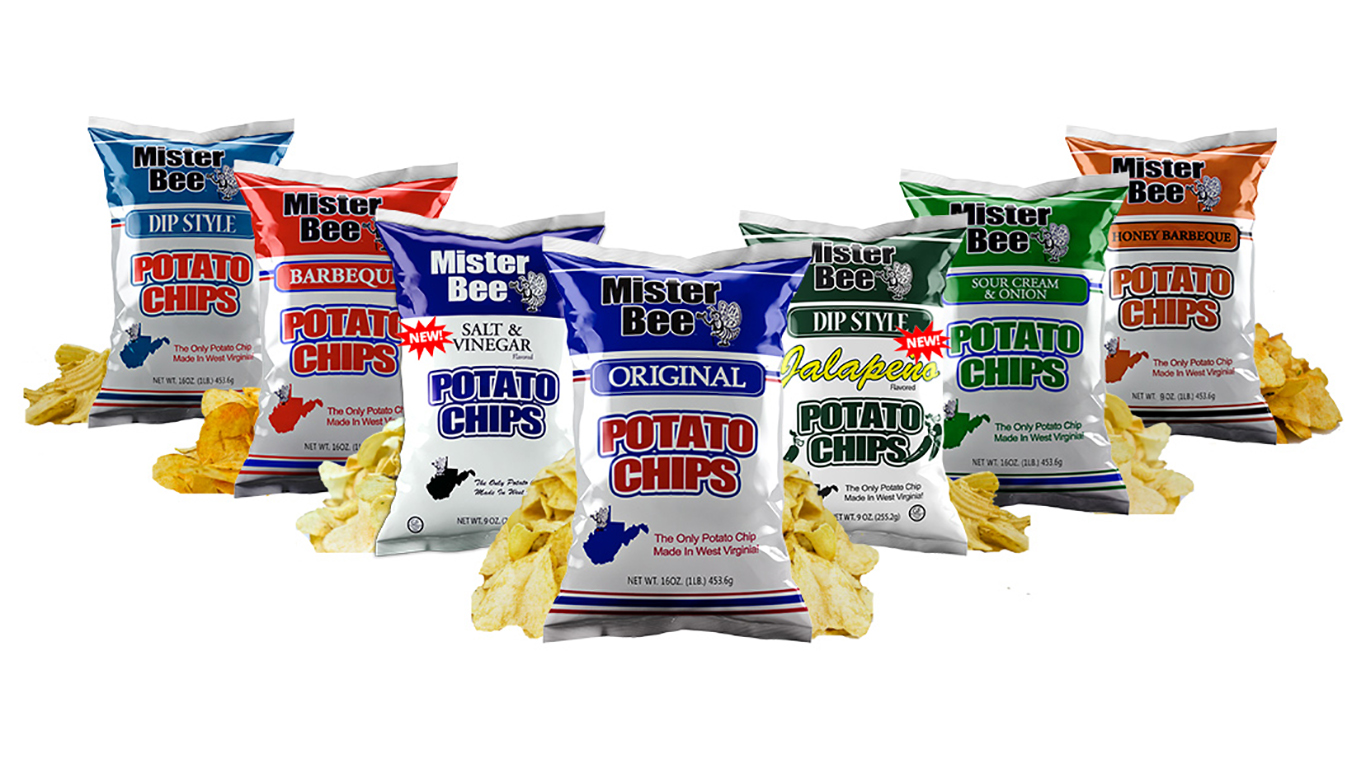
Mister Bee
> Home state: West Virginia
In West Virginia and parts of Ohio and eastern Kentucky, Mister Bee — made by West Virginia’s only potato chip company — is a favorite. Two varieties of kettle chips — Original and Barbeque — are in the lineup, along with Honey Barbeque, among others. Mister Bee also offers Dip Style chips, thicker than usual so they won’t break apart when dredged through blue cheese dip.
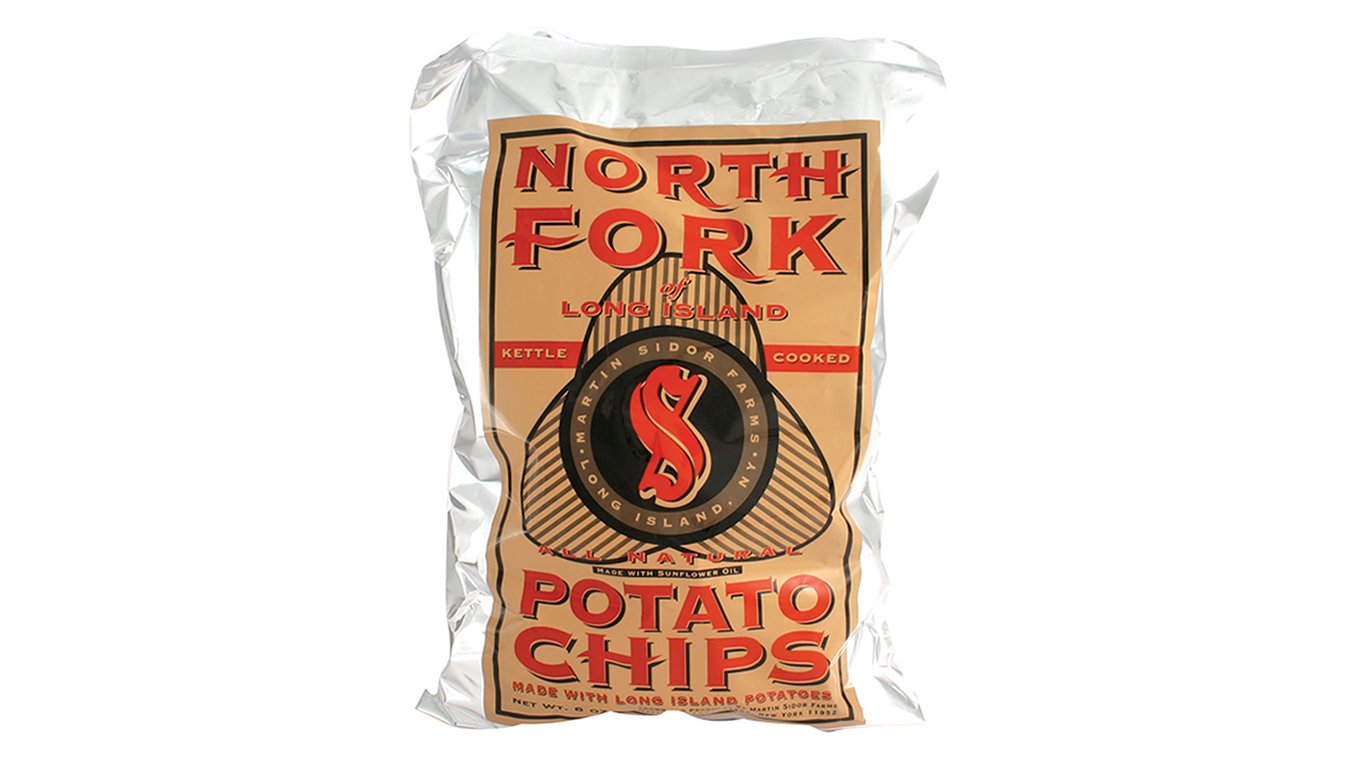
North Fork
> Home state: New York
Long Island’s North Fork was traditionally potato-growing country, and North Fork founder Martin Sidor’s family started growing spuds there in 1910. Faced with competition from larger producers and the growing popularity of potato-free low-carb diets in the 1970s, Sidor decided to expand into chip production. With Cheddar & Onion and Rosemary & Garlic flavors supplementing the usual varieties (the latter developed in response to local winemakers who asked for a chip to serve with their merlots), North Fork chips are thick-cut and kettle-cooked in sunflower oil.
[in-text-ad]
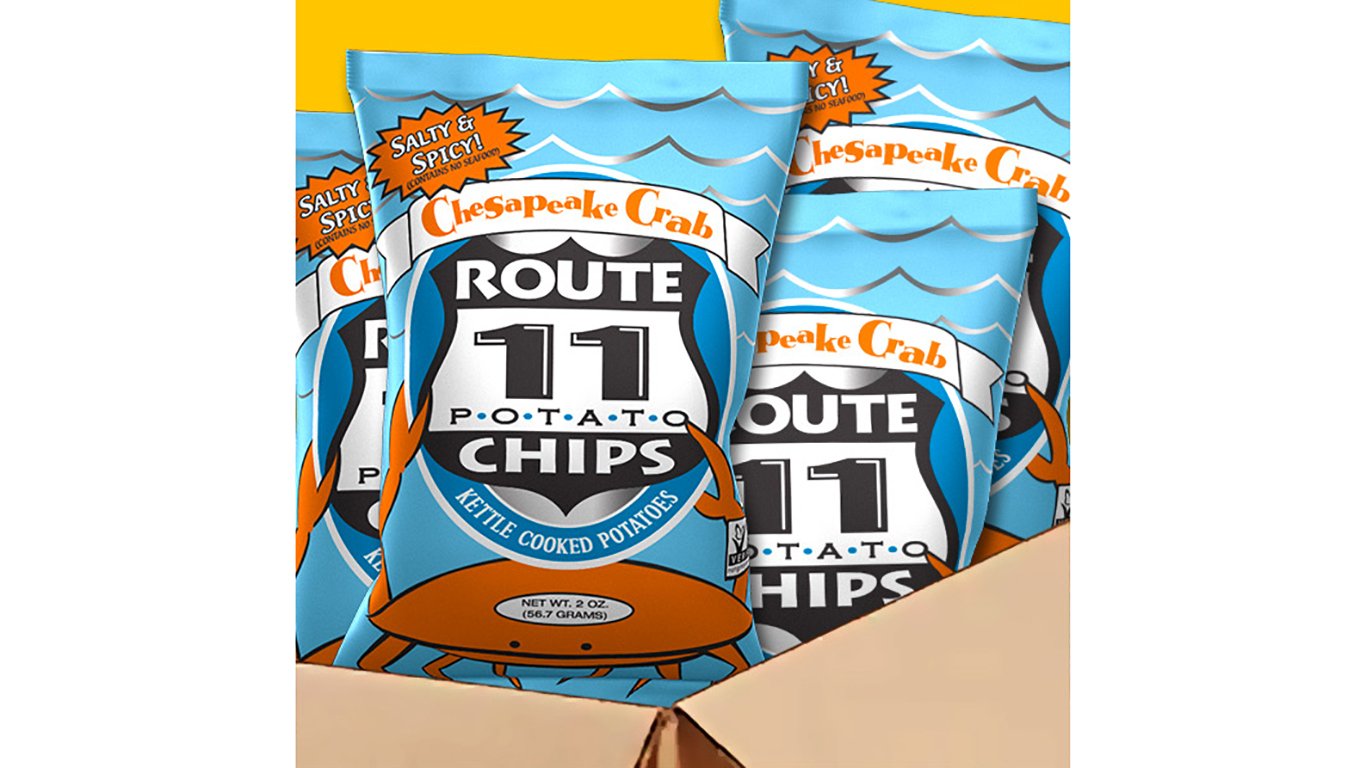
Route 11
> Home state: Virginia
Made in Mount Jackson, in the northeastern part of the state since 1992, these small-batch, nicely curled potato chips come in about 10 versions, including Dill Pickle and Chesapeake Crab. A standout is the spicy variety called Mama Zuma’s Revenge. These are irregularly shaped, gnarled chips with a fiery, smoky chile character.
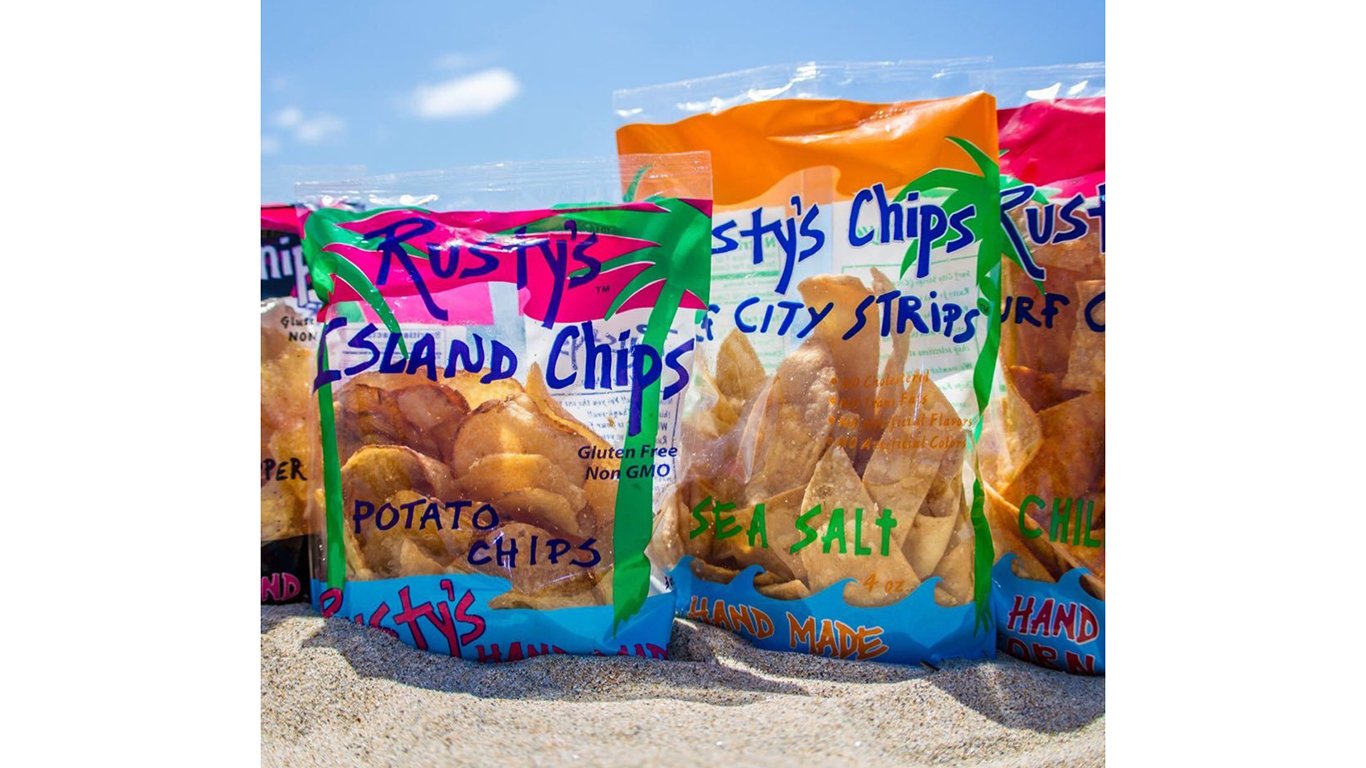
Rusty’s Island Chips
> Home state: California
These come not from an island but from Southern California. Potatoes from Bakersfield are hand-sliced, fried in safflower oil, then salted with French sun-dried sea salt. There are only four varieties — regular, Chili Lime, Sea Salt, and Black Pepper. The chips are sold around Southern California and, under the Wynn’s Resort label, in Las Vegas.
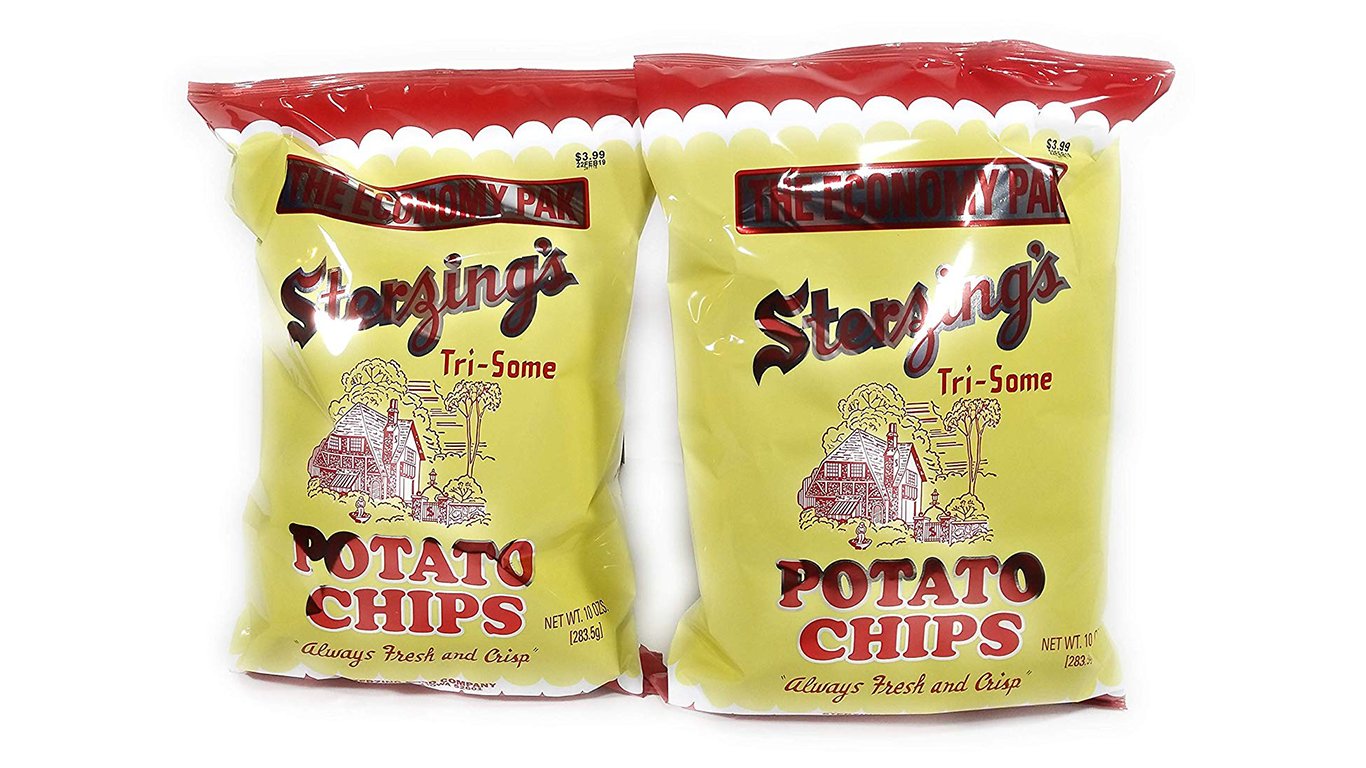
Sterzings
> Home state: Iowa
Dating from the 1930s, Sterzing’s makes old-fashioned potato chips, flavored with salt and nothing else — no barbecue, no sour cream and onion, no jalapeno, just potato. Though they ship nationwide (actually, worldwide — they send chips to the military in Iraq and Afghanistan), Sterzins’s sells its wares retail mostly in southeastern Iowa.
[in-text-ad-2]
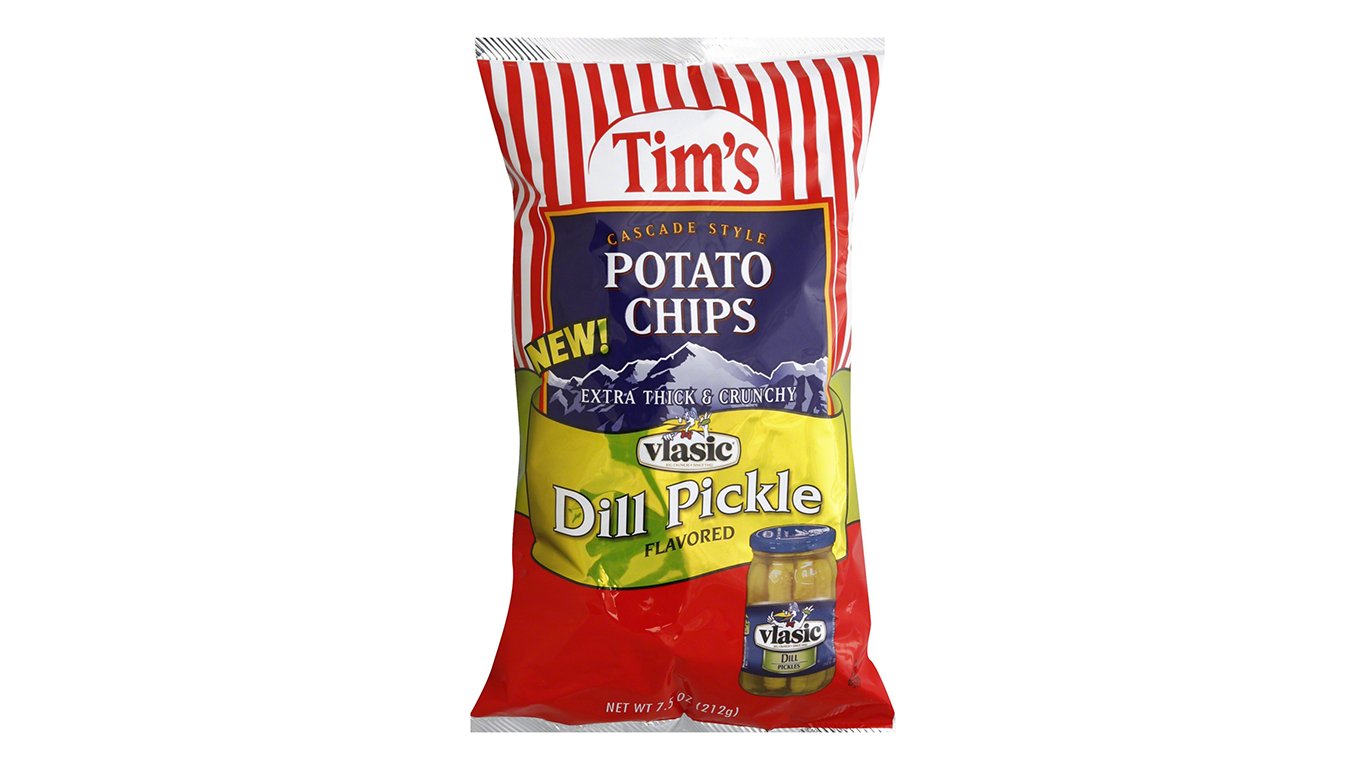
Tim’s Cascade Snacks
> Home state: Washington
With nine varieties — including Coney Island Mustard, Vlasic Dill Pickle, and Smoked Gouda — this 33-year-old company makes both conventional and kettle-cooked chips. The chips are sold primarily in the western states, including Alaska and Hawaii, as well as in Canada and in several Asian countries.
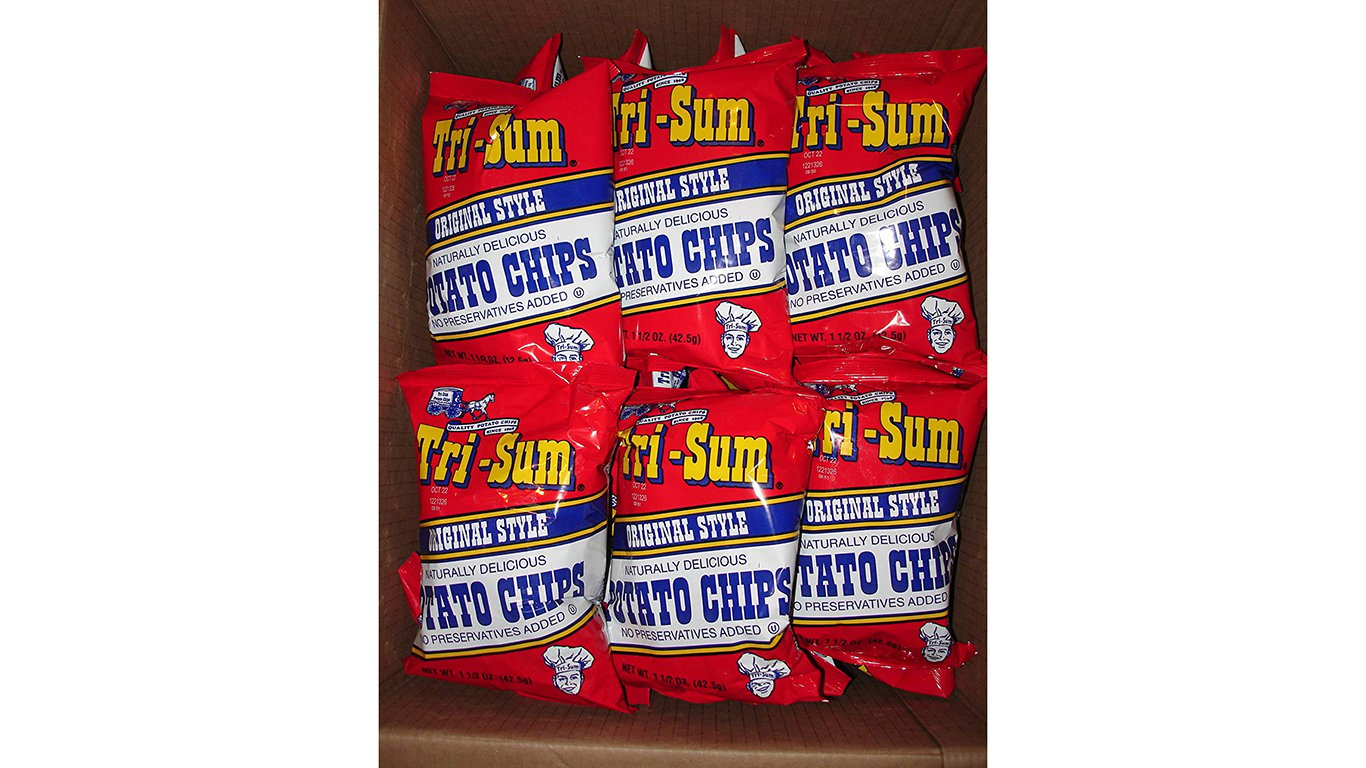
Tri-Sum
> Home state: Massachusetts
Founded in 1908 as the Leominster Potato Chip Company in the town of Leominster, near the New Hampshire border, Tri-Sum has a pretty good claim to being (as their website brags) “America’s First Potato Chip” manufacturer. In addition to the unflavored Tri-Sum originals, the firm also sells flavored chips, including Barbecue and Sour Cream & Onion, under the Wachusett label.
Sponsored: Want to Retire Early? Here’s a Great First Step
Want retirement to come a few years earlier than you’d planned? Or are you ready to retire now, but want an extra set of eyes on your finances?
Now you can speak with up to 3 financial experts in your area for FREE. By simply clicking here you can begin to match with financial professionals who can help you build your plan to retire early. And the best part? The first conversation with them is free.
Click here to match with up to 3 financial pros who would be excited to help you make financial decisions.
Thank you for reading! Have some feedback for us?
Contact the 24/7 Wall St. editorial team.
 24/7 Wall St.
24/7 Wall St.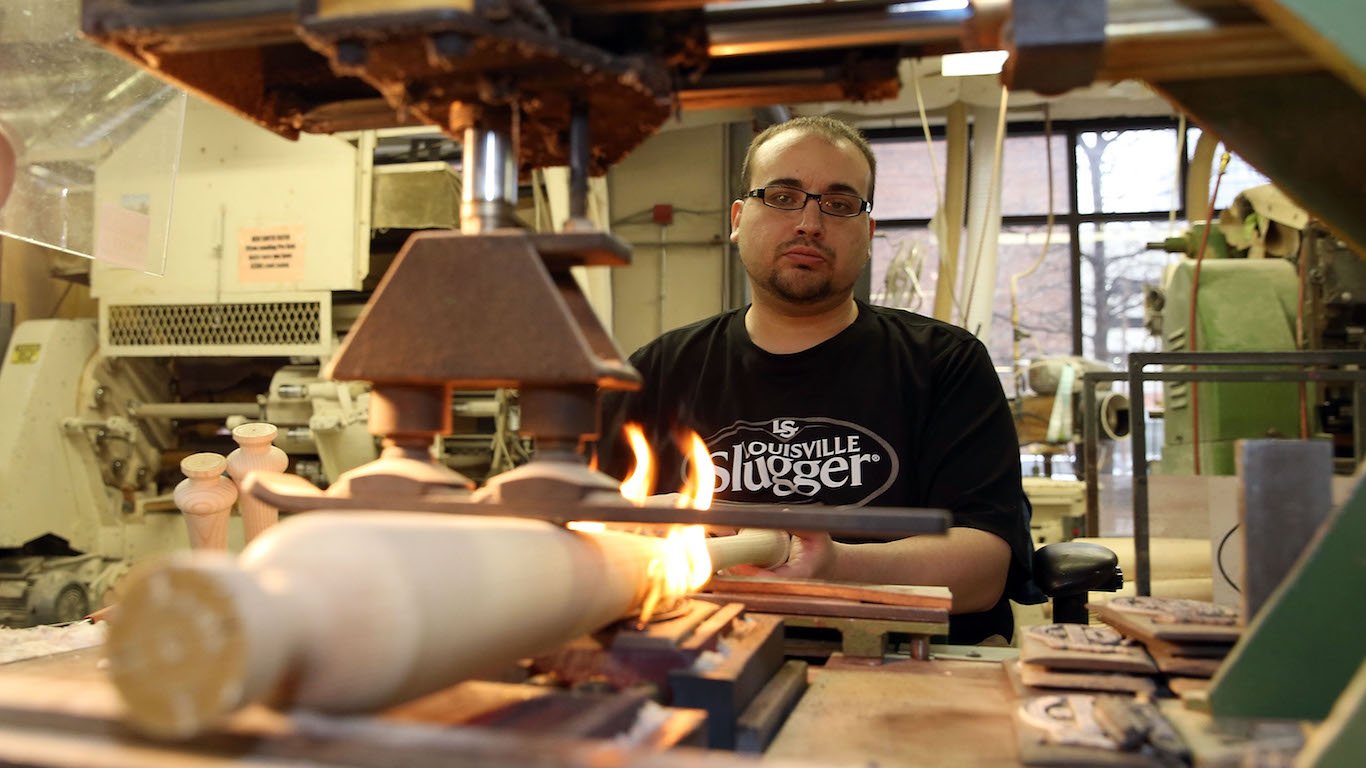 24/7 Wall St.
24/7 Wall St.